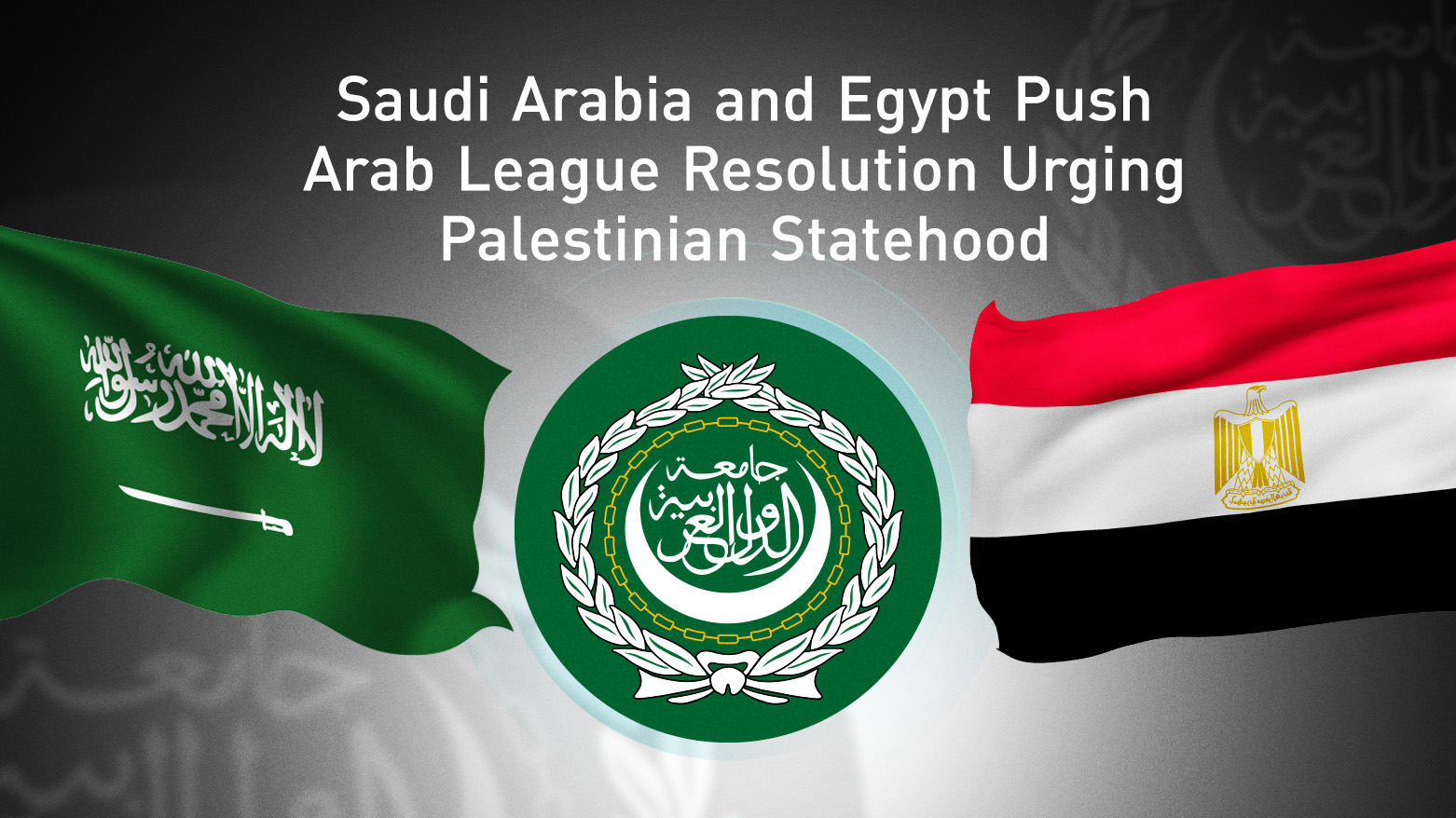Saudi Arabia and Egypt Push Arab League Resolution Urging Palestinian Statehood
Backed by Egypt and Saudi Arabia, the Arab League resolution says the unresolved Palestinian issue and Israeli practices remain key obstacles to peace in the region.

ERBIL (Kurdistan24) — The Arab League declared that peaceful coexistence in the Middle East cannot be achieved without the establishment of a Palestinian state and an end to Israel’s “hostile practices,” according to a resolution adopted Thursday and published by AFP on Saturday.
Submitted by Egypt and Saudi Arabia during a foreign ministers’ meeting in Cairo, the resolution underscored that “the failure to reach a just solution to the Palestinian cause and the hostile practices of the occupying power” remain the foremost obstacles to peace in the region. The session also endorsed a “Joint Vision for Security and Cooperation in the Region.”
The statement came as Israeli forces escalated their military operations around Gaza City and days after far-right Israeli Finance Minister Bezalel Smotrich openly called for annexing large areas of the West Bank to “bury the idea of a Palestinian state.”
The Arab League resolution reaffirmed that lasting stability is impossible while Israel continues "occupying Arab lands or threatens to annex further territory." It also reiterated support for the 2002 Arab Peace Initiative, which promises full normalization of ties with Israel in exchange for a complete withdrawal from lands occupied in 1967 and the creation of an independent Palestinian state.
Currently, only Egypt and Jordan have peace treaties with Israel, while the United Arab Emirates, Bahrain, and Morocco normalized relations with Tel Aviv under the U.S.-brokered Abraham Accords in 2020.
Saudi Arabia’s normalization efforts with Israel, however, were suspended following Hamas’s October 2023 attack and the subsequent Gaza war.
Egypt’s Foreign Ministry on Friday further stressed that “there is no room for allowing any party to dominate the region or enforce unilateral security arrangements that compromise its security and stability.”
The Arab League’s statement comes amid heightened diplomatic friction between Israel and several European states, most notably France. Paris has taken a leading role in advancing recognition of an independent Palestinian state, with French President Emmanuel Macron repeatedly calling for concrete steps toward a two-state solution as the only path to durable peace.
This French push has been coordinated with several European partners, but has drawn sharp criticism from Israel, which firmly rejects international efforts to recognize Palestinian statehood outside of direct negotiations.
In recent months, Macron’s initiative has become a new point of contention in Franco-Israeli relations, culminating in Israel’s refusal to receive the French president for an intended visit. Israeli officials argued that Paris’s campaign undermines Israel’s diplomatic position and rewards what they describe as Palestinian intransigence.
Israel continues to reject any move toward Palestinian statehood under current circumstances, instead expanding settlements in the West Bank and, as underscored by Smotrich’s comments, considering further annexation.
The Arab League’s latest resolution thus aligns with international voices, particularly from Europe, pressing for a two-state solution, but faces a hardening stance from Israel’s government, though, the Trump administration has taken a notably hardline stance, opposing recognition of a Palestinian state and framing such a move as one that would likely embolden Hamas—a group it labels a terrorist organization.
U.S. officials argue that recognizing Palestinian statehood outside direct negotiations undermines peace efforts and strengthens extremist groups. In a tightly coordinated policy move, the administration has denied and revoked visas for around 80 Palestinian Authority and PLO officials—including President Mahmoud Abbas—thereby blocking their attendance at key international gatherings, including a UN General Assembly session and a two-state solution conference organized by France and Saudi Arabia in New York.